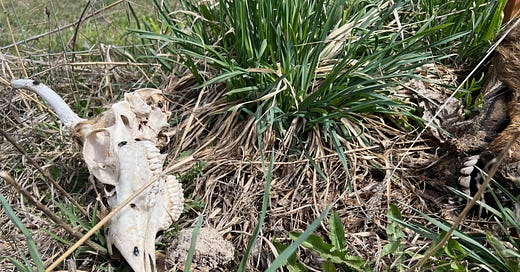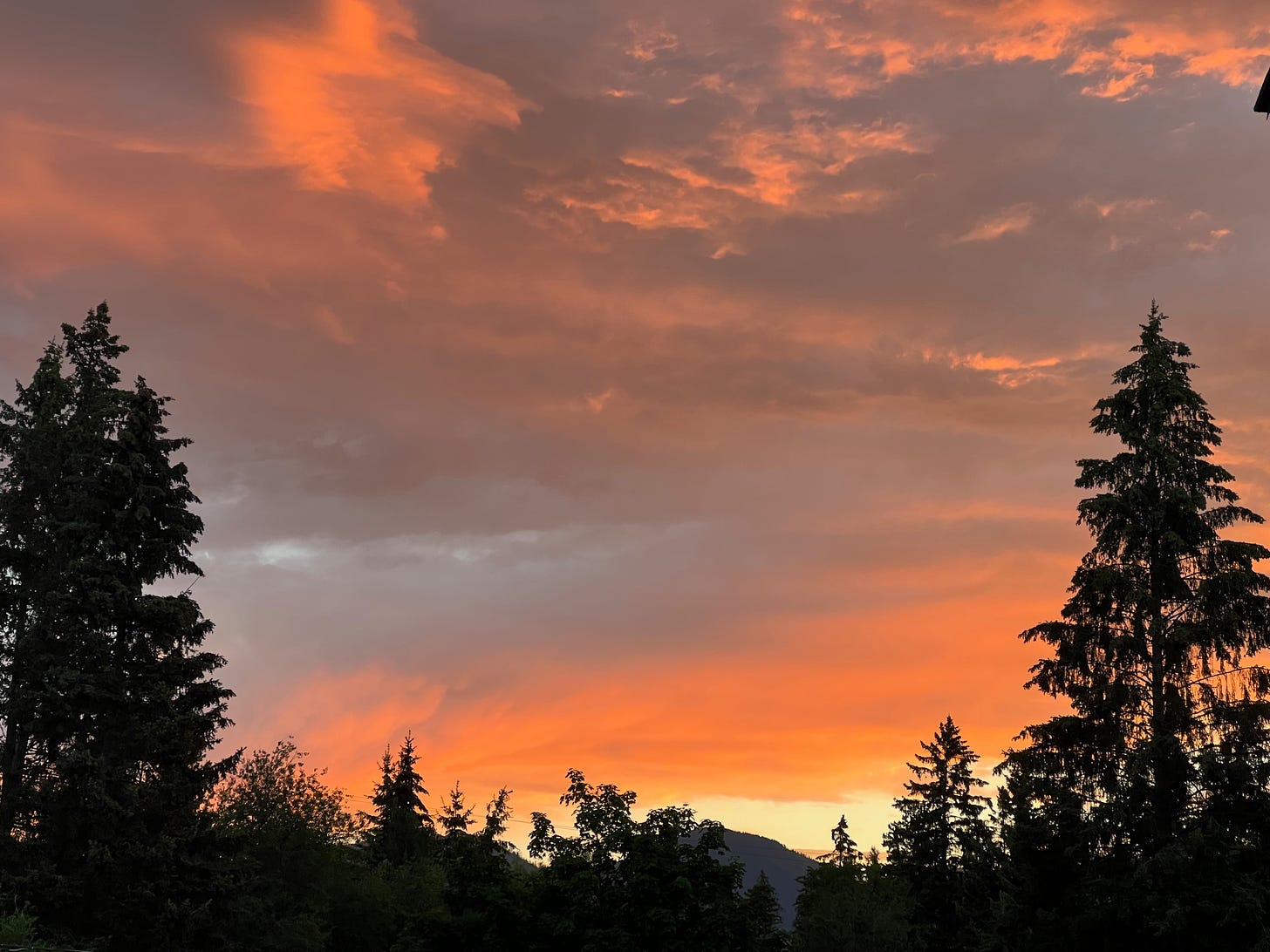“All of us have to learn how to invent our lives, make them up, imagine them. We need to be taught these skills; we need guides to show us how. If we don’t, our lives get made up for us by other people.” —Ursula K. Le Guin
After over a year of commitment, I have finally completed the last deadline in a massive copy editing project. (For those who are new here, my day job is being a freelance copy editor for K-12 textbook publishers.) I can’t remember the last time I had a contract that went on that long, but I’ve been in this profession for over twenty years and the timelines often blend with one another. I remember discrete events, like the finicky tedium of checking correspondence between textbook lessons and hundreds of Texas and California state standards, and how that changed when Common Core became the norm. Or my first ever ebook textbook project and what an entire fiasco it was. (And about which I pine to share details but had to sign a non-disclosure agreement before working on it.)
My eyes hurt. Every day, I get these stabby eyestrain headaches and people advise me to use Flux and I patiently explain that I can’t when copy editing because it washes out some of the editing marks, and I long for the days of printed page proofs and erasable red pens and know they’re never coming back, and then start poking around thinking about a job in landscaping. Wildland firefighting used to be my mental backup job but I’m getting a little old for that. I read thousands of pages of textbooks for work last year—along with 86 books and who knows how many articles for either research or pleasure. Eyes are a work muscle, too, and it’d be nice to give them a rest for a while. Or at least, pare down the copy editing so I can read things I actually want to.
—-
As longtime readers might remember, last year around this time I was getting a bit obsessive over knapweed, thistles, and soil. In May I wrote about dirt, and it’s once again top of my mind. What composes dirt, and how soil became a commodity and who its commodification impacts.
When I see a sign saying “clean fill wanted” or “topsoil for sale,” I think of how many times Ukraine, with its fertile, rich black earth, has been forced into subjugation as the breadbasket enabling some warmongering autocrat. Historian Timothy Snyder, in a response to German political philosopher Jürgen Habermas in the Frankfurter Allgemeine, wrote that “Like Hitler, and for that matter like Stalin, [Putin] seeks to use Ukrainian foodstuffs as a weapon.”
(The pop-up when you open that link is a standard EU privacy agreement. Clicking “Einverstanden” gets you to the article. It’s well worth reading the whole essay.)
In my essay in May last year, I wrote that “It’s an expensive mistake to assume your dirt contains only dirt,” referring to the folly of using a soil tiller when you don’t know what kind of rubbish or rocks are buried underneath, but it’s also worth thinking about how appropriation (theft) of food and of soil encompasses much more than just the dirt itself.
“Unlike, say, trees, soil isn’t precisely a renewable resource. It’s not something you can extract and then plant again. Pretty much all of our life depends on soil, yet it’s not something we’ve really learned to make. Make up for the lack of, yes, sometimes, but not make, at least not fast or at scale. . . . Soil at its most unmolested contains worlds that we’ve barely begun to understand, microbes and bugs and interlocked roots and mycelial networks that leave researchers wondering where mushrooms end and fungi begin.”
Last year I contemplated and rejected purchasing peat. This year I ordered eight cubic yards of compost from our local composting service. It does give me satisfaction that the compost person drives up with her dump truck and her young daughter, and we scrape out rich black material that came from food scraps and not-so-compostable disposable cups from all over the valley. (Something I learned this year: produce stickers don’t seem to compost at all, and a lot of them end up in the compost pile due to grocery store produce “waste.”) I dump lemon peels and lettuce ends and venison scraps into a bucket every week and it eventually gets returned—to me or someone else—as dirt.
—-
Last year the thistles and knapweed problem in my yard completely overwhelmed me, both physically and mentally. They grow so well and so . . . everywhere. I couldn’t keep up. This year, a friend who retired last year but hates being idle agreed to help out in the garden and holy cow is it a transformed place. It actually looks like a garden instead of a thistle haven where some peas and onions grow and you might find a potato if you’re willing to fight for it. Between him and my dad and stepmother—who had to leave Russia and their jobs and income—it’s actually growing food. Even with a lot of failure baked in, like:
All the seedlings we started died and we had to get starts from other people.
The beets are definitely struggling and none of us can figure out why. (Low boron might be a culprit, but the advice I’ve found says to add household borax but be careful because it can be poisonous so I’m going to hold off on that. Other possibility is the clay soil; either way, I’m taking advice to get the soil tested.)
Every time I marvel at the generosity of nature, at how I stick a few pea seeds in the ground and we get enough peas to feed three families, or how we can’t eat enough lettuce to keep up, or how many apples we’re going to have this year, I remember that there are enormous corporate forces out there working very hard to both privatize and limit the generosity of seeds, and to persuade us that scarcity is a law of nature, rather than of people.
The last few weeks have been intense on a lot of levels. I’ve had a ton of work, my kids’ school year ended, it rained like the dickens, those in power of our country and planet are actually trying to kill us in as many ways as possible, and I’m still trying to contribute to my community in ways that might be useful. And, you know, make dinner and do the laundry.
I’m going to be offline for a little bit, camping in the woods and recalibrating a lot of things. I’ve been trying hard to find . . . not hope or optimism exactly, which don’t seem to be a strong part of my nature, but something else: Reminders of what I’m ready to fight for, and what that looks like.
Bonus photo: Sunrise the other morning was out of this world.
Some things to read or listen to:
Season 4 of Threshold, which was on climate change, the steel industry, and COP26, wrapped up with something very close to my heart, which is the stories we tell ourselves about who we are and what is possible: “The way out of our current situation is to actually be better people. And honestly, is that a bad thing? . . . Not only can we live sustainably on the planet, but we can be much nicer people.” (I don’t know why Episode 14, the one quoted here, isn’t on their website, but it was on my podcast app.)
Ilana Bean writing in Guernica about her civil engineer mother’s passion for building “safety towns” or “traffic gardens,” miniature street systems that children—and everyone else—can use to learn road rules and how to navigate streets: “For the most part, we don’t actively interact with transportation until we reach the magic age of sixteen, when we’re supposed to learn how to operate a two-ton vehicle and navigate the road within a period of months. My mom tried to disrupt this dynamic.” (I was fascinated by the scene where the author had been hit by a driver and her mother visited the scene, took measurements, and concluded that her daughter’s life was spared due to a small turning radius for the driver: “There’s luck, but there’s also design.” Please come to my town and all the towns.)
Charles Marohn, the former engineer and founder of Strong Towns who’s been influential in many pro-transit and walkability circles, was on the Volts podcast talking about politics and the unrealistic expectation that American suburbs will ever again be worth investing in: “You were really getting a measurement of the end result of the suburban experiment, complete individual autonomy and social isolation. . . . It does not take much social isolation to make non-homo sapiens primates completely neurotic.” (And seriously, I don’t say this often but I wish I had a way to encourage David Roberts to read my book. He’s been exploring many of its themes recently, including car-centric culture and social trust.)
Life in the Land is a podcast and video project about people living with and in the various lands of Montana. How I said above that I needed to recalibrate and reconnect with “what I’m ready to fight for, and what that looks like”? Just watching the video trailer lifted my heart.
A team of writers for MIT Press on artificial intelligence and making kin with machines by drawing from their Lakota, Cree, and Hawaiian heritages: “How do we as Indigenous people reconcile the fully embodied experience of being on the land with the generally disembodied experience of virtual spaces? How do we come to understand this new territory, knit it into our existing understanding of our lives lived in real space, and claim it as our own?”
In Sapiens, Bob Holmes interviewed a linguistic anthropologist who created the Kryptonian language for Superman and studies the creation of Elvish and Klingon partly to learn how study of created languages can help revive endangered languages.






This made me LOL: "It actually looks like a garden instead of a thistle haven where some peas and onions grow and you might find a potato if you’re willing to fight for it."
I might have shared this with you before but I'm doing it again because it's a favorite:
soil
by Irene Mathieu
the way you say soil
sounds like soul, as in
after we walked through the woods
my feet were covered in soul
when it rains
the soul turns to mud
the soul is made of decomposed
plant and animal matter;
edaphology is the study of the soul’s
influence on living things
while pedology is the study of how
soul is formed, its particular granularity.
you are rooted in a certain red patch
of soul that bled you and your
hundred cousins to life, a slow
warm river you call home.
maybe there is soul under everything,
even when we strike rock first.
the way you say soil you make
a poem out of every speck of dirt.
I had read this yesterday, then this morning read a wonderful poem I had to come back to share.
"Patriotism"
By Ellie Schoenfeld.
My country is this dirt
that gathers under my fingernails
when I am in the garden.
The quiet bacteria and fungi,
all the little insects and bugs
are my compatriots. They are
idealistic, always working together
for the common good.
I kneel on the earth
and pledge my allegiance
to all the dirt of the world,
to all of that soil which grows
flowers and food
for the just and unjust alike.
The soil does not care
what we think about or who we love.
It knows our true substance,
of what we are really made.
I stand my ground on this ground,
this ground which will
ultimately
recruit us all
to its side.
https://www.ayearofbeinghere.com/2013/07/ellie-schoenfeld-patriotism.html